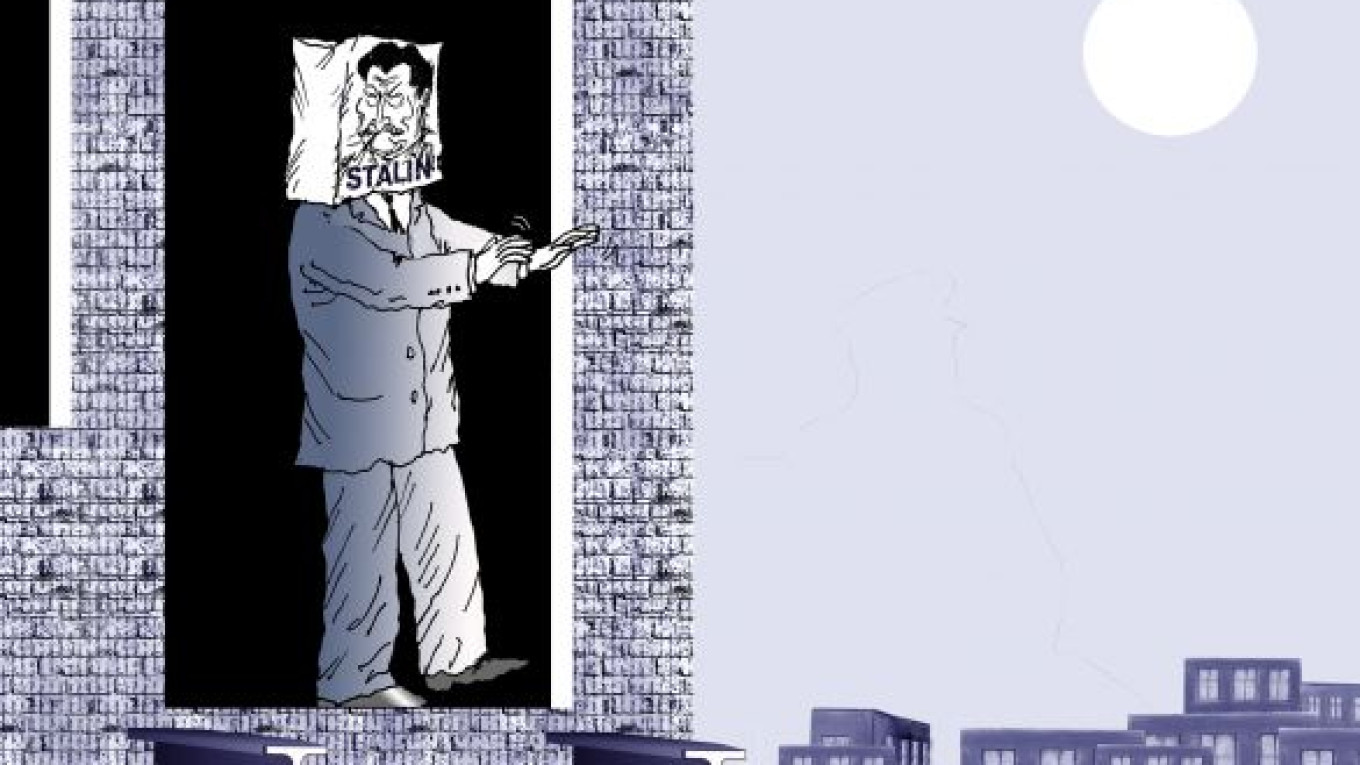This month marks the 70th anniversary of the Red Army's victory at the Battle of Stalingrad, prompting renewed debate over the legacy of Josef Stalin. Once again, many conservative Russians are hoping that the name Volgograd will one day be permanently changed back to Stalingrad. As a nod to them, local Volgograd deputies agreed to call the city Stalingrad during the six days of the battle's anniversary every year. Of course, the deputies wouldn't dare incur the Kremlin's wrath by actually changing the city's name on a permanent basis without President Vladimir Putin's permission. Yet it is doubtful that Putin would agree in any case. After all, why would Putin want to revive Stalin's personality cult when the current national leader is still alive?
Nonetheless, it seems as if Russia's fixation with Stalin will last for a long time to come. In fact, a large part of the population sees happiness only in Russia's past. They are completely disillusioned by the present and see no hope for the future. Roughly half of Russians are trying to walk forward with their heads turned back to the past. The authorities make no attempt to cure them of this dangerous habit but, on the contrary, do all they can to indulge these sentiments. State television is full of old, Soviet-era movies that are filled with long-outdated propaganda. It also shows new films and series that equally distort Soviet history and idealize the "wonderful Soviet times."
Apparently, the Kremlin's pro-Soviet propaganda is an attempt to restore pride in the country's glorious past and strengthen support for the current regime, especially in its neo-Soviet ideological confrontation with the West's "rotten liberalism." Just like in the Soviet period, the Kremlin also targets human rights activists, people who would have been locked up in psychiatric wards had they lived in the Soviet Union.
But glorifying the Soviet past is an extremely risky strategy. It encourages people to compare Stalin to Putin, and this comparison does not always work in Putin's favor. In the minds of conservative voters, the old Soviet social system is preferable to the current one. Indeed, according to a recent Levada Center survey, the current political and economic system is losing supporters. Almost 40 percent of the population would like to live in the "Soviet political system." Only 17 percent are satisfied with the current system, and a slightly larger 22 percent support the model of Western democracy. This liberal segment of the population has remained stable as a percentage since the early 1990s and would provide the electoral base for a strong liberal party — if such a party could ever get off the ground in Russia.
The Putin regime reached its height of popularity in 2008. At that time, 40 percent of the population supported the existing political model and provided a strong electoral base for United Russia. But the subsequent "castling maneuver" that returned Putin to the Kremlin in May and the conclusion made by many Russians that the current system is incapable of resolving key social and economic problems have led to growing disenchantment with the current leadership.
With regard to economic models, after two decades of so-called free-market capitalism, 51 percent now openly yearn for a Soviet-like system of state planning and distribution, according to a recent Levada poll. In the last year alone, the number of Russians favoring a market economy and private ownership fell sharply from 35 percent to 29 percent. Those figures reveal the extent to which many Russians have conflicting ideas and anxieties and believe that the building of a new, post-Soviet future for Russia has hit an ideological dead end. This anxiety is exacerbated by the growing social inequality in Russian society, its aging infrastructure, the breakdown of education and systemic problems in medical care.
Yet underscoring its huge blind spot, the regime does not perceive these shortfalls as problems. With almost all authority held by a single individual, it is impossible to address the full breadth of the problems facing the country in any comprehensive or systematic way. Instead, Putin, who to this day still lacks a coherent long-term strategy for the country's development, haphazardly addresses only those issues that grab his attention, while the key fundamental issues affecting all of society are largely neglected. Instead of producing pragmatic and realistic plans, this system can create only pie-in-the-sky forecasts for the next 10 or 20 years that promise to increase Russians' living standards to that of the U.S.
The authorities continue to foster a cult devoted to all things Soviet and recycle musty, worn-out ideas, which serve as the basis for new laws and policies. At the same time, they are preparing a large-scale wave of privatization that will sell off the remaining assets of the Soviet legacy. It is difficult to find a logical or consistent policy here for the simple reason that one does not exist.
Georgy Bovt is a political analyst.
Related articles:
A Message from The Moscow Times:
Dear readers,
We are facing unprecedented challenges. Russia's Prosecutor General's Office has designated The Moscow Times as an "undesirable" organization, criminalizing our work and putting our staff at risk of prosecution. This follows our earlier unjust labeling as a "foreign agent."
These actions are direct attempts to silence independent journalism in Russia. The authorities claim our work "discredits the decisions of the Russian leadership." We see things differently: we strive to provide accurate, unbiased reporting on Russia.
We, the journalists of The Moscow Times, refuse to be silenced. But to continue our work, we need your help.
Your support, no matter how small, makes a world of difference. If you can, please support us monthly starting from just $2. It's quick to set up, and every contribution makes a significant impact.
By supporting The Moscow Times, you're defending open, independent journalism in the face of repression. Thank you for standing with us.
Remind me later.


